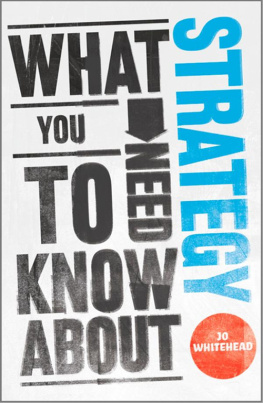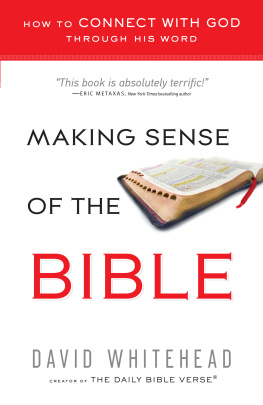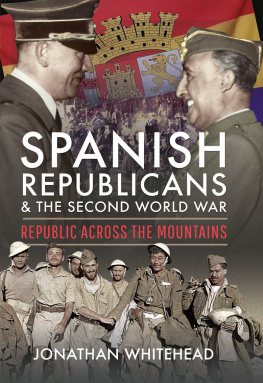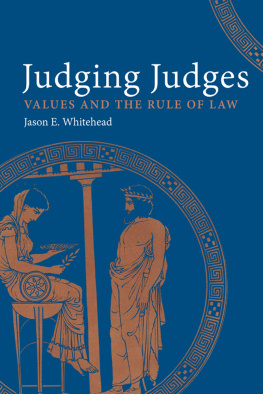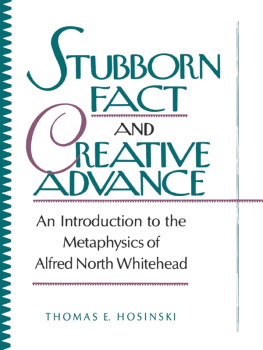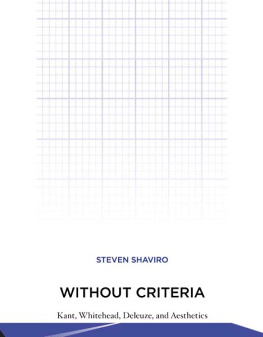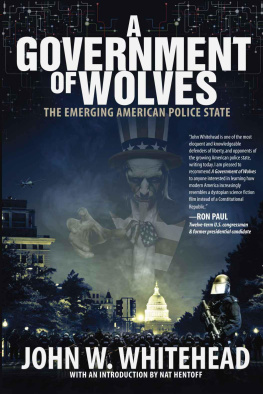Jo Whitehead - What You Need to Know about Strategy
Here you can read online Jo Whitehead - What You Need to Know about Strategy full text of the book (entire story) in english for free. Download pdf and epub, get meaning, cover and reviews about this ebook. year: 2011, publisher: Capstone, genre: Business. Description of the work, (preface) as well as reviews are available. Best literature library LitArk.com created for fans of good reading and offers a wide selection of genres:
Romance novel
Science fiction
Adventure
Detective
Science
History
Home and family
Prose
Art
Politics
Computer
Non-fiction
Religion
Business
Children
Humor
Choose a favorite category and find really read worthwhile books. Enjoy immersion in the world of imagination, feel the emotions of the characters or learn something new for yourself, make an fascinating discovery.
- Book:What You Need to Know about Strategy
- Author:
- Publisher:Capstone
- Genre:
- Year:2011
- Rating:3 / 5
- Favourites:Add to favourites
- Your mark:
- 60
- 1
- 2
- 3
- 4
- 5
What You Need to Know about Strategy: summary, description and annotation
We offer to read an annotation, description, summary or preface (depends on what the author of the book "What You Need to Know about Strategy" wrote himself). If you haven't found the necessary information about the book — write in the comments, we will try to find it.
What You Need to Know about Strategy — read online for free the complete book (whole text) full work
Below is the text of the book, divided by pages. System saving the place of the last page read, allows you to conveniently read the book "What You Need to Know about Strategy" online for free, without having to search again every time where you left off. Put a bookmark, and you can go to the page where you finished reading at any time.
Font size:
Interval:
Bookmark:

This is the stuff you've always been embarrassed to ask about the world of modern business.
The What You Need to Know... books can get you up to speed on a core business subject fast. Whether it's for a new job, a new responsibility, or a meeting with someone you need to impress, these books will give you what you need to get by as someone who knows what they're talking about.
Each book contains:
- What It's all About a summary of key points
- Who You Need to Know the basics about the key players
- Who Said It quotes from key figures
- How You Need to Do It key steps to put your new-found knowledge into practice
- What You Need to Read books and online resources for if you want to deepen your knowledge
- If You Only Remember One Thing a one-liner of the most important information
You might also want to know:
- What You Need to Know About Business
- What You Need to Know About Economics
- What You Need to Know About Project Management
- What You Need to Know About Leadership
- What You Need to Know About Marketing

This edition first published 2011
2011 Jo Whitehead
Registered office
Capstone Publishing Ltd. (A Wiley Company), The Atrium, Southern Gate, Chichester, West Sussex, PO19 8SQ United Kingdom
For details of our global editorial offices, for customer services and for information about how to apply for permission to reuse the copyright material in this book please see our website at www.wiley.com.
The right of the author to be identified as the author of this work has been asserted in accordance with the Copyright, Designs and Patents Act 1988.
All rights reserved. No part of this publication may be reproduced, stored in a retrieval system, or transmitted, in any form or by any means, electronic, mechanical, photocopying, recording or otherwise, except as permitted by the UK Copyright, Designs and Patents Act 1988, without the prior permission of the publisher.
Wiley also publishes its books in a variety of electronic formats. Some content that appears in print may not be available in electronic books.
Designations used by companies to distinguish their products are often claimed as trademarks. All brand names and product names used in this book are trade names, service marks, trademarks or registered trademarks of their respective owners. The publisher is not associated with any product or vendor mentioned in this book. This publication is designed to provide accurate and authoritative information in regard to the subject matter covered. It is sold on the understanding that the publisher is not engaged in rendering professional services. If professional advice or other expert assistance is required, the services of a competent professional should be sought.
Library of Congress Cataloguing-in-Publication Data
9780857081018 (paperback), ISBN 9780857081117 (ebk),
ISBN 9780857081124 (ebk), ISBN 9780857081131 (ebk)
A catalogue record for this book is available from the British Library.
Set in 10.5/13.5 pt New Baskerville by Toppan Best-set Premedia Limited
Printed in the UK by TJ International
The concept of business strategy was barely known or cared about before the 1970s, but these days most managers, whether they work in a small business, a not-for-profit organisation or a large company, want to know how to create strategy.
Although there are many books about strategy, relatively few describe how to create it. Some describe hot new strategies or important concepts; others are filled with dubious advice and quick fixes that may do more harm than good. But practical guidance on designing strategy is in short supply. Existing textbooks present, at best, a very idiosyncratic or incomplete view of how to do so.
This book aims to fill the gap, drawing on a career spent as a partner with the world's top strategy consulting firm and from teaching strategy at major business schools and companies. It integrates accepted research and thinking, while offering simple-to-use frameworks. In addition to the tools and concepts that managers need to know, it offers advice on how to involve the right people in a stimulating and challenging process.
This book does not pretend that devising a strategy is easy. Like anything else, to become an accomplished strategist requires practice. The website for the book, www.whatyouneedtoknowaboutstrategy.com provides case studies and examples that illustrate the application of the tools and techniques presented, as well as listing further materials, references and ideas. Suggestions for further reading are included at the end of each chapter.
Enjoy the book and start building your strategy skills!
WHAT IT'S ALL ABOUT 
- What strategy is
- Why strategy is important
- The basic strategy questions
- Answering the questions
How do you develop a strategy? The answer is deceptively simple: you need to answer six basic strategy questions. But beware: each question has many possible answers and is beset with uncertainties. This chapter explains those six questions and the techniques and approaches available to answer them. Details of how to apply them are laid out in the chapters that follow.
But first you need to be clear about what strategy is and why being able to develop a sound strategy is important.
Strategy is both the goal of an organisation, and the pathway it follows to achieve that goal.
Organisations have past, current and future strategies. This book is aimed at helping the reader design future strategies. Understanding past and current strategies is part of the design process but it is not the objective here.
Organisations are shaped by a mix of intended and unintended strategies. While the perspective of this book recognises the importance of considering and responding to the impact of unforeseen events, the goal is to help you design intended strategies even if these need to be continually revised and refined in the light of new developments. In Benjamin Franklin's words, this book will help drive thy business.
WHO SAID IT...
... drive thy business or it will drive thee.
Benjamin Franklin
All intended strategies are decisions, but not all decisions create strategies. A strategic decision is one that is difficult, hard to reverse:, and involves the commitment of significant resources.
For example, a manufacturing business has to decide how to lower costs by 50 million. If doing so will have a major impact on the cost structure and involve tricky choices such as whether to cut costs in the current production facility, outsource production or build a new factory in a low cost location then it could be described as a strategic decision. If the choice is relatively simple such as switching to a more modern and well-tested production technology then it is not.
What is strategic depends on the perspective of those involved. For example, the head of the purchasing department may have to achieve savings of 10 million of the total 50 million target. The manager within the purchasing department who is in charge of purchasing energy may have the strategic goal of cutting costs by 1 million. The 50 million, 10 million and 1 million targets may all be strategic goals from the perspective of the individuals responsible for achieving them.
Font size:
Interval:
Bookmark:
Similar books «What You Need to Know about Strategy»
Look at similar books to What You Need to Know about Strategy. We have selected literature similar in name and meaning in the hope of providing readers with more options to find new, interesting, not yet read works.
Discussion, reviews of the book What You Need to Know about Strategy and just readers' own opinions. Leave your comments, write what you think about the work, its meaning or the main characters. Specify what exactly you liked and what you didn't like, and why you think so.

